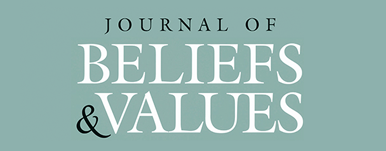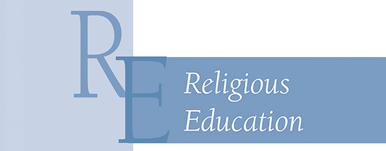Spiritual and Religious Diversity
Introduction
This Spiritual and Religious Diversity module offers resources and specific strategies for educators to use inclusive practices regarding religious accommodations. By embracing religious diversity in the classroom, faculty can illustrate a powerful model to all students of recognizing and embracing difference.
Respect for religious points of view also includes consulting and working to honor interfaith calendar dates when scheduling meetings, projects, and due dates. With this in mind, we invite you to explore the resources on this page and incorporate many of the suggested approaches into your teaching practices.
This article covers:
- Introduction
- Teaching Tools
- Supportive Resources

Inclusive pedagogies expand religious & spiritual literacy

Honoring spiritual diversity allows for whole-person teaching

It is important to honor religion's affect on students' lives

Inclusive practices allow for the recognition of difference
-
For Students
University policy grants students excused absences from class or other organized activities for the observance of religious holy days, unless the accommodation would create an undue hardship. Faculty are asked to be responsive to requests when students contact them IN ADVANCE to request such an excused absence. Students are responsible for completing assignments given during their absence, but should be given an opportunity to make up work missed because of religious observance.
Examples of reasonable accommodations for student absences might include: rescheduling of an exam or giving a make-up exam for the student in question; altering the time of a student’s presentation; allowing extra-credit assignments to substitute for missed classwork or arranging for an increased flexibility in assignment due dates; releasing a graduate assistant from teaching or research responsibilities, etc. The student must be given the opportunity to do appropriate make-up work that is equivalent and intrinsically no more difficult than the original exam or assignment. Faculty should keep in mind that religion is a deeply personal and private matter and should make every attempt to respect the privacy of the student when making accommodations.
If a student and course instructor cannot agree on an accommodation, the student may bring the matter to the Department Chair for a decision. An additional resource for resolving disagreements over accommodations is the Office of Equal Opportunity
-
For Faculty
Faculty should notify their department chair (or otherwise appropriate person within their department) of any such absences that will occur as a result of this policy and explain alternative accommodations that will be made for missing a class (such as holding a make-up class, a guest speaker, etc.). The faculty member is to be trusted that he/she will observe the holy day as promised; no proof will be expected.
If a faculty member’s request for a religious accommodation is denied by the department head, the faculty member may appeal the decision to the dean and ultimately to the Provost.
Employees who believe they have been discriminated against on the basis of religion by the denial of a requested religious accommodation may contact the Office of Equal Opportunity.
DU Interfaith Calendar
Videos
Articles

Faith Dialogue as a Pedagogy for a Post Secular Religious Education
Inter-faith or inter-religious dialogue takes place for a range of reasons and comes in many guises...
Read the Article
What Might Meaningful Interfaith Education Look Like?
Politics, Principles, and Pedagogy form our perspectives as a Jewish educator and as a Christian educator...
Read the Article
Religious Diversity in Schools: Addressing the Issues
As the following vignettes indicate, today’s schools are made up of diverse groups of students including...
Read the Article














